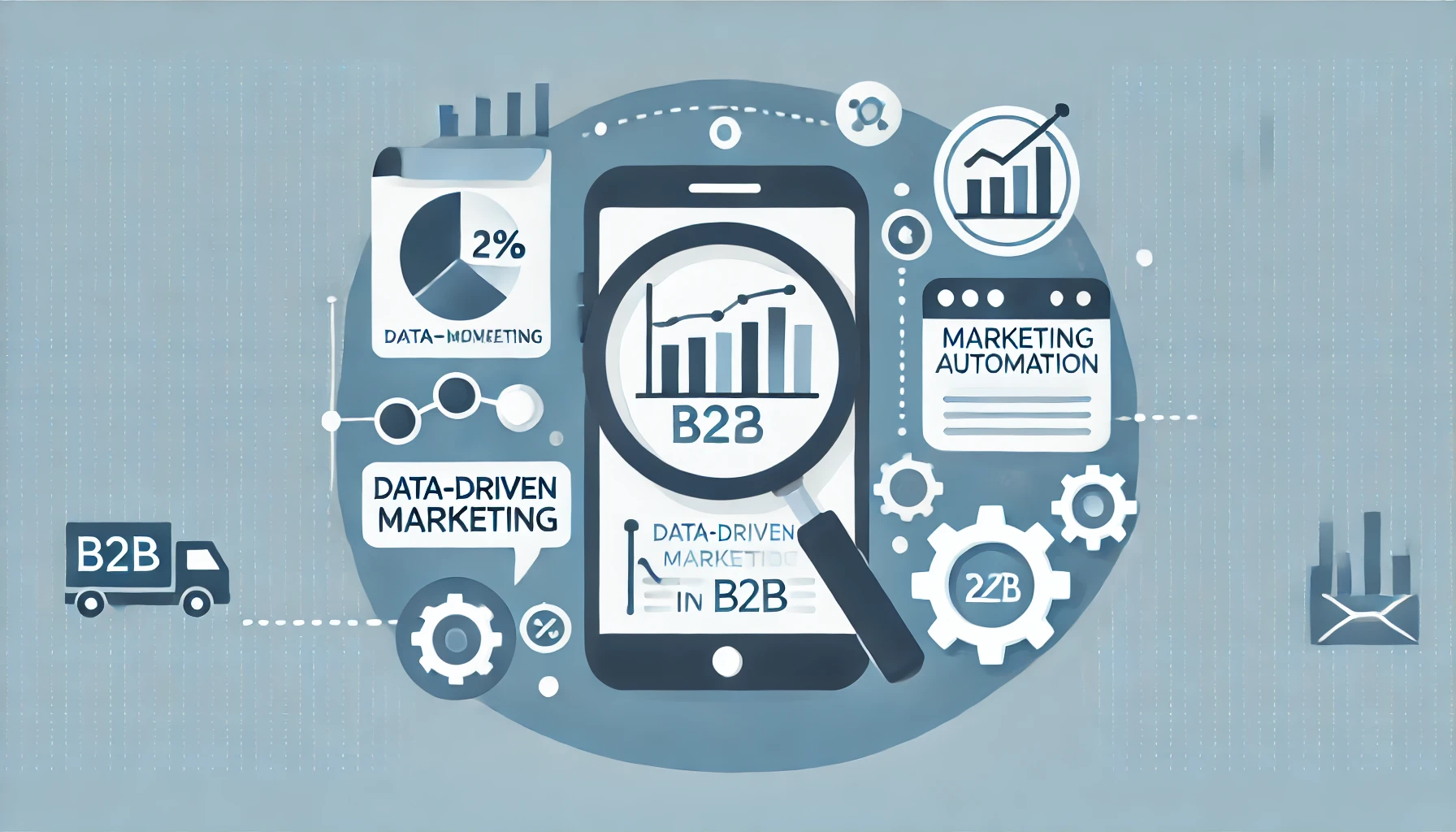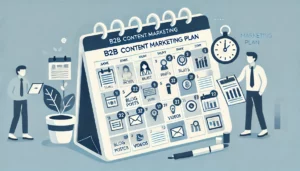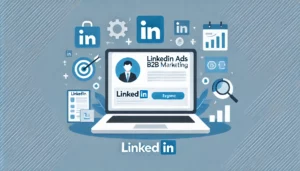The Role of Data-Driven Marketing in B2B

In today’s competitive B2B landscape, data has become a crucial asset for marketers. The ability to collect, analyze, and act on data allows businesses to make informed decisions, personalize their marketing efforts, and predict future trends. This blog explores the role of data-driven marketing in B2B and how it can significantly enhance marketing strategies and outcomes.
Understanding Data-Driven Marketing
Data-driven marketing involves the use of data to guide marketing strategies and decisions. Unlike traditional marketing, which often relies on intuition and historical performance, data-driven marketing uses real-time data and analytics to understand customer behavior, optimize campaigns, and measure success.
Definition and Key Principles
Data-driven marketing is based on the principles of accuracy, relevance, and timeliness. It involves collecting data from various sources, analyzing it to extract insights, and using those insights to inform marketing strategies. This approach ensures that marketing efforts are targeted, relevant, and effective.
Differences Between Traditional and Data-Driven Marketing
Traditional marketing often relies on broad segmentation and mass communication, leading to lower precision and effectiveness. In contrast, data-driven marketing focuses on detailed segmentation, personalized communication, and continuous optimization based on data insights. This shift results in more efficient and impactful marketing efforts.
Importance of Data in Decision-Making
Data plays a pivotal role in enhancing the accuracy and relevance of marketing decisions. Here are some key areas where data-driven decision-making makes a significant impact:
Enhancing Accuracy and Relevance
Data-driven marketing allows businesses to understand their audience better and tailor their messaging accordingly. By analyzing customer behavior, preferences, and pain points, marketers can create highly relevant campaigns that resonate with their target audience.
Personalization and Targeting
One of the most significant benefits of data-driven marketing is the ability to personalize marketing efforts. By leveraging data, businesses can deliver personalized content, offers, and recommendations to individual customers. This level of personalization increases engagement and conversion rates.
Predictive Analytics and Forecasting
Predictive analytics uses historical data and machine learning algorithms to forecast future trends and behaviors. In B2B marketing, predictive analytics can help identify potential leads, forecast sales trends, and optimize resource allocation. This proactive approach enables businesses to stay ahead of the competition.
Tools and Technologies for Data-Driven Marketing
Implementing data-driven marketing requires the right tools and technologies. Here are some essential tools that can help businesses leverage data effectively:
Customer Relationship Management (CRM) Systems
CRM systems like Salesforce and HubSpot centralize customer data and provide insights into customer interactions and behaviors. These systems enable businesses to manage relationships, track leads, and automate marketing activities.
Marketing Automation Platforms
Marketing automation platforms like Marketo and Pardot help streamline marketing processes by automating repetitive tasks. These platforms can manage email campaigns, lead nurturing, and customer segmentation, making it easier to execute data-driven strategies.
Analytics and Reporting Tools
Analytics tools like Google Analytics and Adobe Analytics provide detailed insights into website traffic, user behavior, and campaign performance. Reporting tools help visualize data and track key performance indicators (KPIs), enabling businesses to measure the effectiveness of their marketing efforts.
Strategies for Implementing Data-Driven Marketing
To successfully implement data-driven marketing, businesses need to follow a structured approach. Here are some key strategies:
Collecting and Analyzing Data
Start by collecting data from various sources, such as website analytics, CRM systems, and social media platforms. Analyze this data to identify patterns, trends, and insights that can inform your marketing strategies. Use advanced analytics techniques to gain deeper insights and make data-driven decisions.
Segmentation and Targeting
Segment your audience based on various criteria, such as demographics, behavior, and preferences. Target each segment with personalized messages and offers that address their specific needs and pain points. This approach ensures that your marketing efforts are relevant and effective.
Continuous Optimization and Testing
Data-driven marketing is an ongoing process that requires continuous optimization and testing. Use A/B testing to experiment with different strategies and measure their impact. Continuously monitor performance metrics and make data-driven adjustments to improve your campaigns.
Benefits of Data-Driven Marketing in B2B
Data-driven marketing offers several benefits that can significantly enhance B2B marketing efforts:
Improved ROI and Efficiency
By using data to guide marketing decisions, businesses can optimize their resources and achieve higher returns on investment (ROI). Data-driven strategies are more efficient and cost-effective, leading to better overall performance.
Enhanced Customer Insights
Data provides valuable insights into customer behavior, preferences, and needs. By understanding your customers better, you can create more targeted and relevant marketing campaigns that resonate with your audience.
Better Alignment with Sales
Data-driven marketing helps align marketing and sales efforts by providing a clear view of the customer journey. This alignment ensures that marketing and sales teams work together to achieve common goals, leading to more effective lead generation and conversion.
Challenges and Solutions
While data-driven marketing offers many benefits, it also comes with its own set of challenges. Here are some common challenges and solutions:
Data Quality and Integration Issues
Ensuring data quality and integrating data from multiple sources can be challenging. To address this, implement data governance practices, use data cleansing tools, and invest in data integration platforms that provide a unified view of your data.
Privacy Concerns and Compliance
Data privacy and compliance are critical considerations in data-driven marketing. Ensure that your data collection and processing practices comply with relevant regulations, such as GDPR and CCPA. Implement robust data security measures to protect customer data.
Overcoming Organizational Resistance
Implementing data-driven marketing may face resistance from within the organization. To overcome this, educate stakeholders about the benefits of data-driven marketing, provide training on new tools and technologies, and demonstrate the value through pilot projects and case studies.
Case Studies of Successful Data-Driven Marketing
Here are some examples of companies that have successfully implemented data-driven marketing strategies:
Company A: Enhancing Personalization
Company A used data-driven marketing to enhance personalization in their email campaigns. By analyzing customer behavior and preferences, they delivered personalized content and offers, resulting in a 30% increase in engagement and a 20% boost in sales.
Company B: Optimizing Lead Generation
Company B implemented predictive analytics to optimize lead generation. By identifying high-potential leads and targeting them with personalized messages, they increased their lead conversion rate by 25% and reduced their cost per lead by 15%.
Company C: Improving Customer Retention
Company C used data-driven insights to improve customer retention. By analyzing customer feedback and behavior, they identified pain points and implemented targeted retention strategies, leading to a 10% increase in customer retention rates.
Data-driven marketing plays a crucial role in B2B, offering numerous benefits such as improved ROI, enhanced customer insights, and better alignment with sales. By leveraging data and implementing effective strategies, businesses can optimize their marketing efforts and achieve long-term success. Embrace data-driven marketing to stay ahead of the competition and drive your B2B marketing to new heights.





